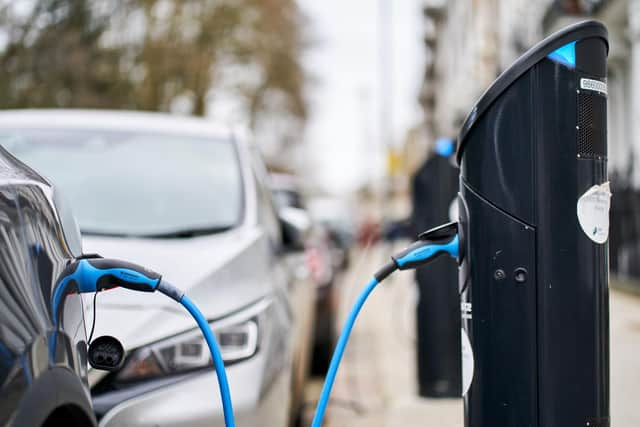Why green investments make economic as well as moral sense for Government and individuals: Andy Brown
The most environmentally sensible way of doing things is also the cheapest choice. A small up front capital investment results in a large day in day out saving on running costs.
That is certainly the case when it comes to energy. The simplest and the quickest way to reduce the cost of living is usually to improve insulation and once that has been done putting solar panels up is the next sensible step.
Advertisement
Hide AdAdvertisement
Hide AdThey make good economic common sense for the vast majority of buildings.


The amount of energy that comes off the roof of my home is a massively better return on the money it cost to do the job than is available from any other reliable form of investment. With battery storage those panels give good reliable savings 24 hours a day even in cloudy conditions.
When putting up new buildings the economics is even more advantageous. The vast bulk of the cost of installing solar panels is the work on the roof. It takes time and money to put up scaffolding and fit new equipment onto or between old tiles. Doing the job whilst building a new roof puts very little onto the cost of a new home and the saving on the bills greatly exceeds any extra mortgage costs. Especially with sky high interest rates.
What is true for the individual is also true for most businesses both in the private and the public sector. At current energy prices the cost of running most operations can be significantly reduced by more than the interest payment on an investment in improving energy efficiency. That has a huge potential to help both the business bottom line and the national battle with inflation.
Advertisement
Hide AdAdvertisement
Hide AdThe clean solution is also the cheap solution when it comes to generating power. Getting energy from an onshore wind farm is usually exceptionally good value for money and cuts overall bills.
Incentives to encourage off peak demand and to increase energy storage are even better value because they avoid the need to keep power stations running to deal with high levels of demand at half past five in the evening.
The only reason there is a green levy on most energy bills instead of a green subsidy is a political choice. Nuclear power requires massive building projects which usually run into delays and go over budget and even then produce some of the most expensive energy there is. The cost of that has been loaded onto your bill whilst onshore wind farms that could cut your bill have been effectively banned for years. Even after recent changes it will still be incredibly difficult to get planning permission for onshore wind.
Across most parts of suburban Yorkshire large numbers of new homes are still going up without a single solar panel on the roof. A few imaginative developers like Redrow Homes have realised the potential for their customers to save costs and every one of their homes will have heat pumps driving under floor heating systems by the end of this year.
Advertisement
Hide AdAdvertisement
Hide AdContrary to widely circulated misinformation such systems are perfectly capable of generating cosy amounts of heat for new homes even in the depths of the coldest weather. They do so much cheaper than gas boilers.
Misinformation about costs also dominates a lot of discussion about transport. An electric car is astonishing cheap to run for anyone who can fit a charger into their home. It is much quicker and more convenient to come home and plug in a car than to stop at a petrol station and sit in a queue.
Anyone with a job that requires them to do a lot of miles starting from home is highly likely to be able to recover the additional purchase price of a fully electric vehicle on lower fuel bills and service charges.
Ranges of modern electric vehicles are also increasingly convenient. Mine comfortably took four people with luggage 250 miles on one charge and came home with a nice margin to spare. Such distances between charges mean that even some heavier vehicles such as buses can be operated efficiently free of the need to spend money on petrol. Charging buses up at night when electricity use is low adds to the savings.
Advertisement
Hide AdAdvertisement
Hide AdIn China the economics of this have been recognised for several years and many Chinese cities already have very efficient fully electric bus services. Their early adoption of modern technology has put them in an incredibly strong position in the future of the car industry. There is already a good quality all electric car available to buy in China for £8,000. Which is a worrying thought for British manufacturers.
Fossilised thinking about the costs of new technology come at a heavy price not just for the individual but for our country. By delaying the adoption of new ways of working we are putting the future of our manufacturing industries at risk.
The country which is slowest to adopt new technology rarely prospers in a competitive world. Something which is worth remembering the next time you are told by the British government that we can’t afford to invest in better greener technology.
Andy Brown is the North Yorkshire Councillor for Aire Valley, representing the Green Party.